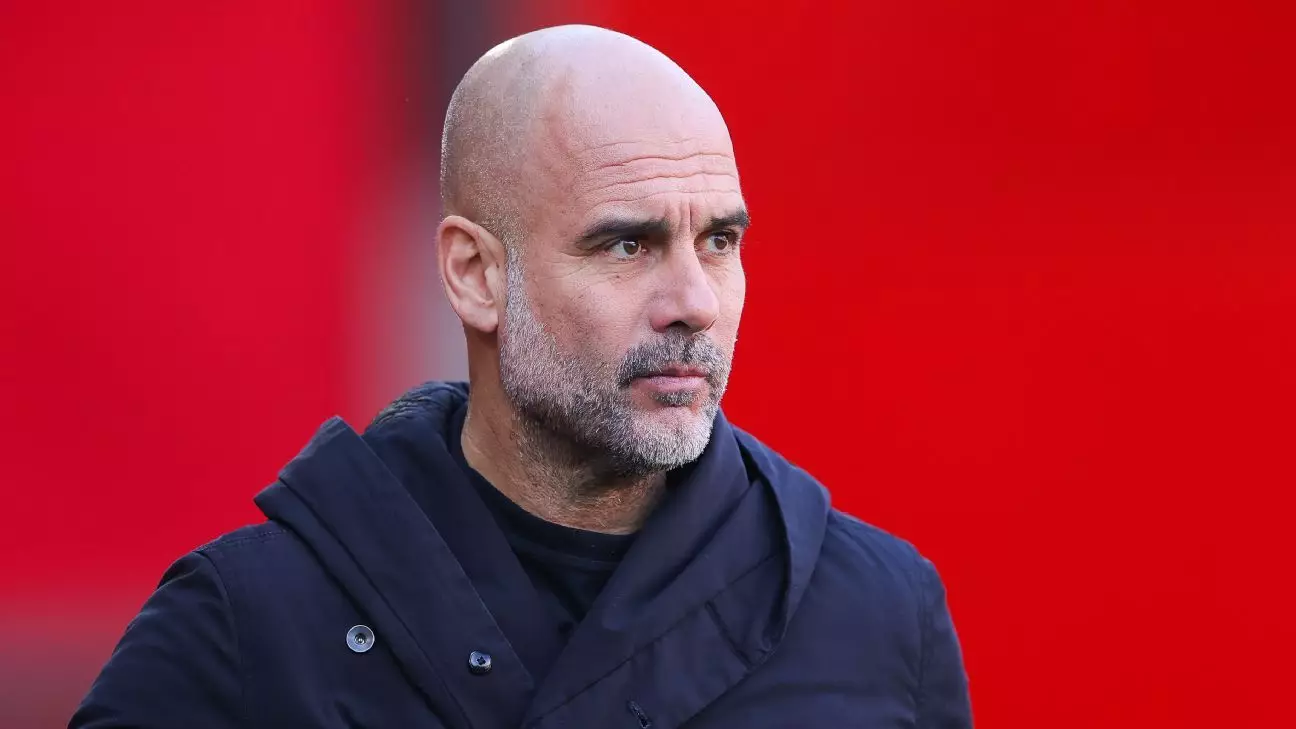The ethos of a team hinges significantly on the morale and respect it fosters among its members, and for Manchester City, particularly this season, that foundation seems to be shaken. Erling Haaland’s candid remarks about a perceived lack of “hunger” within the team highlight a pressing concern that could undermine their current trajectory. Motivation, oftentimes described as the lifeblood of performance, is imperative for any successful squad’s accomplishment, especially for a team used to consistently dominating on the pitch.
Pep Guardiola’s directive for a self-driven dialogue among players underscores the importance of unity and accountability within the squad. Rather than relying solely on coaching strategies or motivational speeches, encouraging players to reflect and communicate their feelings can breed a deeper understanding of their shared goals. This dynamic can be essential in reigniting the fire that propels teams to triumph over adversities and underperformance.
The Weight of Expectations
City’s history as a powerhouse of English football naturally places immense expectations on its shoulders, and with glory comes pressure. The squad’s current struggles are indicative of the mental hurdles they face in precisely managing these expectations. Despite a commendable five-match winning streak, the collective mindset of the players, as highlighted by Haaland, remains a crucial focal point.
There’s a stark distinction between enjoying one’s status as a contender and actively striving to reclaim that title. City’s players must recognize that complacency can often masquerade as satisfaction with results. Disappointment rooted in stagnation isn’t merely the absence of motivation; it can also emanate from an over-reliance on past successes, which can hamstring a team’s future ambitions.
The Return of Key Players
The narrative of recovery is further complicated by injuries, as evidenced by Haaland’s recent absence due to an ankle injury. His readiness to return will undoubtedly inject energy into the team, yet it also raises questions about the bridge between individual performance and overall team success. While Haaland’s impressive goal tally speaks to his talent, football is fundamentally a team sport where collective synchronization can amplify performance.
Guardiola’s management of his squad will be under scrutiny, particularly concerning how he navigates the transitions of revitalized players like Haaland alongside pivotal figures such as Kevin De Bruyne. With talks of De Bruyne’s potential moves away from the club, it is vital for Guardiola to manage these shifts in a way that galvanizes his existing players while fostering an optimistic outlook for the future.
Navigating the Challenges Ahead
Moving forward, the squad must foster a culture where players encourage one another and rekindle their aspirations. It’s not solely about winning games but restoring the ethos of camaraderie that once propelled City to the summit of the Premier League. Guardiola, as a coach, should advocate for open communication channels, welcoming the thoughts and ideas of his players to combat the sense of complacency.
By cultivating a reflective and proactive approach among the team, Manchester City has the potential to harness the strength of every member as they tackle their challenges head-on. The season may have seen its share of lows, but the framework for revival lies in the spirit and resolve of its players to overcome these obstacles together.

